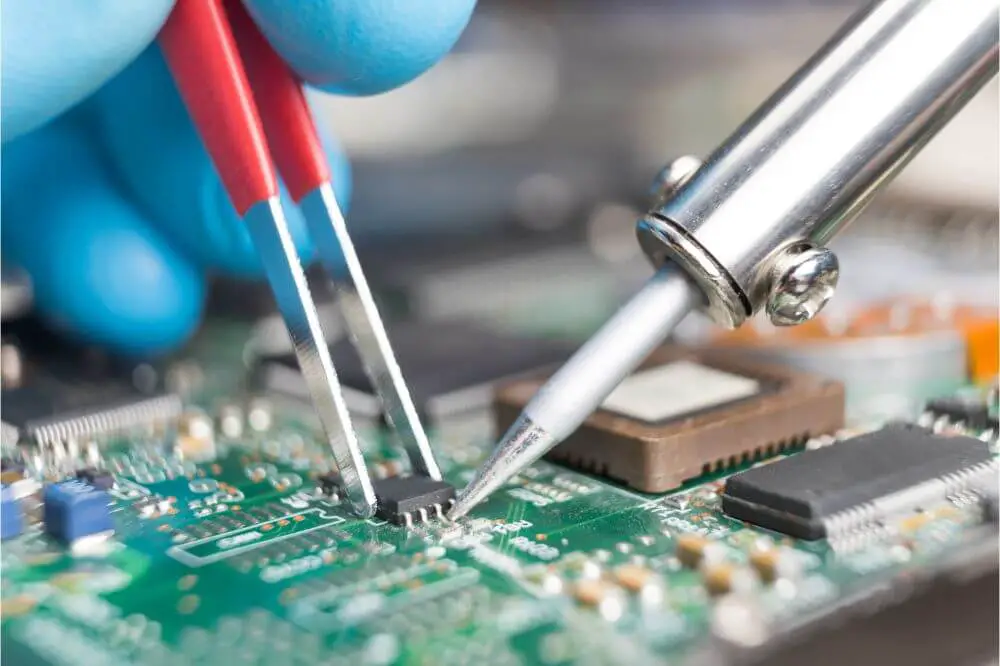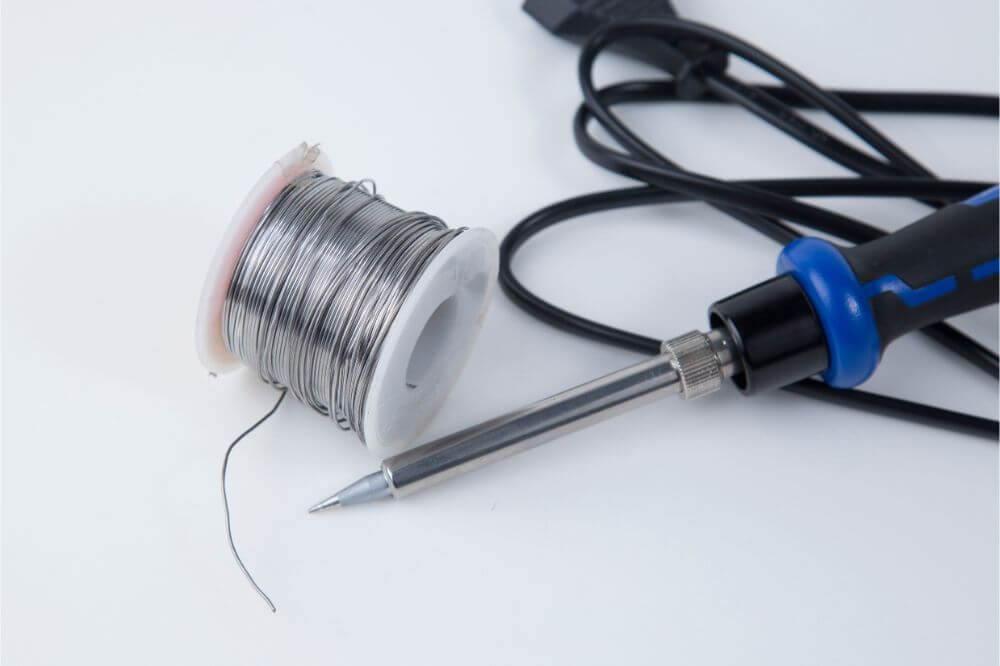Soldering is a handy skill to have. First, however, you need the right kind of soldering iron. It’s essential to know the two types of soldering irons: butane and battery.
There are also corded electric soldering irons, although this is not what we will discuss. However, corded electric and battery-powered soldering irons share some similarities.
This article is a butane vs. battery soldering iron comparison. First, you must determine whether you need a butane or a battery-powered soldering iron.
Butane Soldering Irons
The butane soldering iron is obviously powered by butane. This is one of the oldest types of soldering irons and one of the most effective and commonly used. For many purposes, this is still the soldering iron of choice.
Many people like the butane soldering iron as it uses gas to heat up and doesn’t require a battery or power outlet. Moreover, they perform exceptionally well in various tasks. Let’s see why butane soldering irons are good and what makes them bad.
Advantages of Butane Soldering Irons
First, let’s look at the advantages of using a butane soldering iron.
Portable
One benefit of using a butane soldering iron is that it is highly portable − you don’t have any cords to plug into an electrical outlet. This makes butane soldering irons ideal for areas without electricity and remote job sites. It’s also just convenient because you don’t have a power cord in your way.
Easy to Find
Another benefit is that you can find butane soldering irons in any building or hardware store. Moreover, the butane used to power these soldering irons is easy to find. You should never have trouble finding the components you need to use one of these tools.
Cost-Effective
Yet another benefit is that this is one of the most affordable types of soldering irons. Butane is also highly affordable. Moreover, butane soldering irons come in many types and sizes to choose from.
Versatile Use
Butane soldering irons are highly versatile and can be used for various tasks. You could efficiently perform most standard soldering iron tasks with a butane iron.
Quick Heating
In addition, butane soldering irons quickly heat up. A butane soldering iron is ideal if you have a lot of work and need to get started. These can reach full heat in under a minute.
Disadvantages of Butane Soldering Irons
Butane soldering irons also have various disadvantages that need to be considered.
Issues with Temperature Control
One of the most significant issues is that although butane soldering irons heat up quickly, they don’t have great temperature control.
They stay at temperature for a long time, but accurately adjusting the temperature can be challenging. This can be a problem for certain applications that require you to use a specific temperature.
Sustainability Issues
Another issue is that butane soldering irons aren’t sustainable for the environment. Butane is not a renewable energy source, and extracting it from the ground is not eco-friendly. Moreover, burning butane also releases greenhouse gases into the environment.
The Cost of Butane
The other downside is that you have to keep buying butane to fuel your soldering iron. Now, butane is not very expensive, but you have to keep buying it. Also, you have to keep making trips back to the store to buy more, which is another expense.

Battery Soldering Iron
As you can probably tell, battery-powered soldering irons are pretty portable and have a few other advantages. So let’s take a closer look at what you can expect from a battery-powered soldering iron.
Advantages of Battery Soldering Irons
Let’s look at the advantages of a battery soldering iron.
Ease of Use
One thing that stands out about battery soldering irons is that they are very easy to use, especially temperature control. Although not always the case, as it does depend on the model, battery soldering irons usually have pretty decent temperature control. In addition, they heat reasonably quickly, although not quite as quickly as butane soldering irons.
Portable
Battery soldering irons don’t have any cords, making them quite portable. You don’t have to deal with extension cords, and you don’t need an electrical outlet. This makes the battery soldering iron ideal for remote locations where you don’t have access to electrical outlets.
They Are Fairly Cost-Effective
Moreover, battery soldering irons are generally relatively cost-effective. The battery makes them slightly more expensive, especially compared to a corded model. However, you never have to worry about purchasing more butane.
Quite Eco-Friendly
Although they aren’t as eco-friendly as electric corded models, battery soldering irons are more ecofriendly than the butane version. In addition, battery-powered tools do not emit any greenhouse gases, making them eco-friendlier than butane soldering irons.
Disadvantages of Battery Soldering Irons
Of course, battery-powered soldering irons also have disadvantages, so let’s take a quick look.
Heating Time
It’s not like battery soldering irons take a long time to heat up, but they don’t heat up nearly as quickly as butane soldering irons. So if you need quick work done, go with a butane model.
Weight
Battery soldering irons can be pretty heavy because you have the added weight of the battery. They can therefore cause user fatigue more quickly than a butane soldering iron.
Limited Battery Life
Another disadvantage is that battery soldering irons will only work for so long before the battery runs out. So although they will provide enough battery life for basic tasks, they will need recharging at some point.
Heat Sustainability Issues
Another issue with some lower-quality models is that they don’t sustain temperatures very well. So while they may get up to temperature, they might have trouble maintaining a specific temperature over time.
Conclusion
You should now know everything there is to know about both butane and battery soldering irons to make an informed decision between the two.

